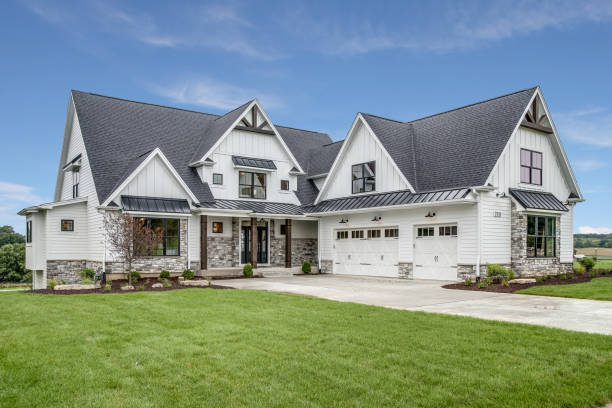
Perhaps you are thinking about investing in real estate and have considered the possibility of owning a rental house. It's the right time to look into the possibility of homeownership, since rates are at their lowest in the past fifty years.
In 2004, the nation's homeownership rate has decreased by 9%. The decline in the homeownership rate can be due to a myriad of reasons. Renters are more likely to have the money to buy homes since they've become much more costly than their incomes. In addition, younger Americans enjoy the flexibility renting offers, and tend to put off decisions in life that may precede buying a home, such as the marriage ceremony or beginning a family.
As a result, younger generations are staying in renting market into their mid-30s and 20s. The number of renters in the baby boomer generation has also increased, by 4.3 million over the last 10 years. It all suggests that the American rental market is flourishing. Renting is more affordable than buying for the majority of Americans.
Renter households are growing more quickly than homeowner households, landlords have an advantage in the rental market. You might be interested in the potential investing opportunities that exist for those who invest in real property.
Owning a rental property has many benefits. One of these is the steady income it earns. Some landlords may feel pride in owning a property. It can be enjoyable be confident in managing and making decisions concerning the property that you have. Others may be more interested in the economic rewards as well as safety of renting a property.
One of the most important aspects to succeed as a beginner rental property investor is understanding the value of properties and the best area, understanding the market and, most important, finding great tenants. If you meet these criteria, you can be better prepared to reap the benefits of owning rental property.
These are some of the advantages that landlords get from their landlords:
1. Passive income source
Perhaps the biggest benefit to renting a property is the fact that it's an income source. It's regular income that needs less effort to keep. This is a great alternative for those looking to make some cash on the side or perhaps as an additional source of savings in retirement. In addition, rent income can be taxed in a different manner than work income.
Naturally, you'll need to work out all the income streams prior to investing in rental property. To be able to ensure that being an owner is more likely to pay off for you, you'll have be able to calculate all of your costs. When you've got a clear picture of your cash flow it's time to evaluate whether the numbers suggest you're likely to be able to make steady income from the property before you purchase it.
2. More security
Some people need to move temporarily for work. Some inherit homes from their families that they aren't willing to sell for emotional reasons. The home may be empty for many reasons. A vacant home is potentially left open to vandalism and Squatters. Maintenance issues can also be not addressed can escalate into larger problems. It's hard to always keep in check a house which you're not living in. Renting the property to tenants will provide you with assurance that your house is maintained and watched after.
3. The flexibility to sell when it is appropriate
If you're ready to relocate, but the market conditions are not ideal. It is possible to let the property rent until the market improves and then sell it. grand dunman renting out of your home lets you have the option of selling your property once you're in more advantageous position to earn a profit off your property.
4. Option to move forward
In some cases, you might be no longer able to reside in the same place as before because of circumstances that are financial. It is essential to be able be able to return home if you have to move for job. Of course, you'll want be sure to review your state's as well as local housing laws and respect the terms of your lease for any tenants currently in the lease.
5. Appreciation of property value
You can rent out the property in order to keep it safe in the event that your home appreciates. Or, you could sell your property later. Markets will have different appreciation rates. Research the appreciation potential of different cities and neighborhoods for an idea of what you could be able to expect.
6. Diversification of investment
You may already have money invested in the market for stocks. According to a recent blog post of BiggerPockets the possession of property can help you diversify your portfolio, which is an additional layer of protection against risk. You may also be able to take advantage of market movements that are positive.
